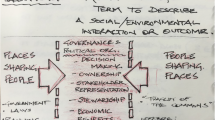Abstract
Archaeology undertaken in overtly politicized environments creates situations and data that archaeologists are not positioned to control either in the moment or in perpetuity. This commentary examines the five diverse, revealing case studies that appear Archaeologies 2.2 and 3.1 and identifies the underlying dynamics that can create both an ethical burden for archaeologists and potentially charged, even dangerous, situations for others. These include archaeological heritage management demands and failures; contrary heritage valuation; restriction of associations with potential heritage resources; balancing archaeological research goals against local economic, political and social aspirations; and the complex trans-border reality of archaeologically identified societies that complicates heritage deployment in modern contexts. Whether or not activist engagement or outcomes are part of our practice or intention, there is no such thing as a value-free archaeological outcome.
Resumen
La arqueología desarrollada en ambientes abiertamente politizados provoca situaciones y datos que los arqueólogos no están en situación de controlar, ni en el momento ni de forma perpetua. Este artículo examina cinco ejemplos reveladores que aparecen en Archaeologies 2.2 y 3.1 e identifica las dinámicas subyacentes que podrían crean tanto una carga ética para los arqueólogos, como situaciones potencialmente cargadas, e incluso peligrosas, para otros.
Esto incluye demandas y fracasos en la gestión del patrimonio arqueológico, evaluaciones del patrimonio contrarias, la restricción de asociaciones con recursos patrimoniales potenciales; objetivos de investigación arqueológica fluctuantes frente a aspiraciones económicas, políticas y sociales; y la compleja realidad transfronteriza de las sociedades identificadas a nivel arqueológico, que dificultan el despliegue del patrimonio en los contextos modernos. Tanto si los compromisos o los resultados activistas forman parte de nuestra práctica o de nuestras intenciones, como si no, no hay nada como un resultado arqueológico libre de criterios impuestos por valores subjetivos.
Résumé
L’archéologie conduite dans des environnements résolument politisés contribue à la création de situations et de données que les archéologues ne peuvent maîtriser sur le moment ou dans leur prolongement. Nous examinons par ce commentaire cinq différents cas publiés dans Archaeologies 2.2 et 3.1 et identifions les dynamiques sous-jacentes qui peuvent produire un fardeau moral pour certains archéologues, voir même des situations dangereuses pour d’autres. Cela inclut des demandes ou des échecs liés à la gestion du patrimoine archéologique, des objectifs de recherches archéologiques qui se trouvent en opposition avec le développement économique, des aspirations politiques et sociales et des réalités culturelles transfrontalières qui compliquent le déploiement du patrimoine dans des contextes modernes. Si l’engagement ou les résultats d’activistes font partie de notre pratique ou de nos intentions, il n’y a rien comme des résultats archéologiques à valeur-libres.
Similar content being viewed by others
References
Abercrombie T.A. (1998) Pathways of Memory and Power: Ethnography and History among an Andean People. University of Wisconsin Press, Wisconsin
Abu el-Haj N. (2001) Facts on the Ground: Archaeological Practice and Territorial Self-Fashioning in Israeli Society. University of Chicago Press, Chicago
Anderson B. (2004) Nationalism and Cultural Survival in Our Time. In: Bartholomew D., Jerome M. L. (eds), At the Risk of Being Heard: Identity, Indigenous Rights, and Postcolonial States. (pp 165–190) University of Michigan Press, Ann Arbor
Berkhofer R.F. (1995) Beyond the Great Story: History as Text and Discourse. Belknap Press of Harvard University Press, Cambridge
Bernbeck, R. (In press). Heritage Politics: Learning from Mullah Omar?? In Filtering the Past, Building the Future: Archaeology, Tradition and Politics in the Middle East, Ran Boytner, Lynn Swartz Dodd, and Bradley Parker, editors, to appear with University of Arizona Press
Cojtí Cuxil, D. 1995. UB’ANIK RI UNA’OOJ UCHOMAB’AAL RI MAYA’ TINAMIT: Configuración del Pensamiento Político del Pueblo Maya 2da. Parte., Cholsamaj, Guatemala City
Das V. (1997) Language and Body: Transactions in the Construction of Pain. In: Arthur K., Das V., Lock M. (Eds), Social Suffering. University of California Press, Berkeley
Dodd L. S. (2005) The Medium is the Message. Borders, Legacy and Wealth in Iron Age Syria. In: Parker B., Rodseth L., Adams L. (Eds), Frontiers Through Space and Time: Interdisciplinary Perspectives on Frontier Studies. University of Arizona Press, Tucson
Eschle, C., and B. Maiguashca (Eds), (2005) Critical Theories, International Relations and ‘The Anti-Globalisation Movement’: The Politics of Global Resistance. RIPE series in global political economy Routledge, New York
Gardner, A. 2006. Fluid Frontiers: Cultural Interaction on the Edge of Empire. Paper presented at the Cultures of Contact: Archaeology, Ethics, and Globalization conference held at Stanford University, February 16–19, 2006. Available on February 16, 2006 at http://metamedia.stanford.edu/projects/CulturesofContact/admin/download.html?attachid = 9174
Jefferson, T. 1953. Letter to Samuel Kercheval, Monticello, July 12, 1816. In: Thomas Jefferson On Democracy 73–74, S. Padover (editor)
Jeganathan, P. 2005. Pain, Politics, and the Epistemological Ethics of Anthropological Disciplinarity. In: Embedding Ethics, edited by M. Lynn, and P. Pels, pp. 147–168. Oxford, Berg
Jofré Poblete D. (2003) Una Propuesta de Acercamiento al Patrimonio Arqueológico de la Comunidad de Belén (Región de Tarapacá, Chile) [translated title: A Proposal For Approaching The Archaeological Heritage of the Belén Community (Region of Tarapacá, Chile)]. Chungara Revista de Antropología Chilena 35(2):327–335
Joyce R. (2002) Academic Freedom, Stewardship, and Cultural Heritage: Weighing the Interests of Stakeholders in Crafting Repatriation Approaches. In: Cressida F., Hubert J., Turnbull P. (Eds), The Dead and their Possessions: Repatriation in Principle, Policy and Practice. (99–107) Routledge, London
Joyce R. (2005) Solid Histories for Fragile Nations: Archaeology as Cultural Patrimony. In: Meskell L., Pels P. (Eds), Embedding Ethics. (253–274) Berg, Oxford
Killebrew A. (2005) Biblical Peoples and Ethnicity. An Archaeological Study of Egyptians, Canaanites, Philistines, and Early Israel 1300–1100 B.C.E. Society of Biblical Literature, Atlanta
Kojan D. Angelo D.(2005) Dominant Narratives, Social Violence and the Practice of Bolivian Archaeology. Journal of Social Archaeology 5(3):383–408
Lowenthal D. (1998) The Heritage Crusade and the Spoils of History. Cambridge University Press, Cambridge
Lynott M.J., abd Wylie A. (editors) 1990. Ethics in American Archaeology: Challenges for the 1990s. Society for American Archaeology Special Report Series, Society for American Archaeology, Washington, DC
Mamani Condori, C. 1996. History and Prehistory in Bolivia: What about the Indians? Contemporary Archaeology in Theory: A Reader, editors R. Preucel and I. Hodder, pp. 632–645. Blackwell Publishers, Oxford
Marliac A. (2004) Is Archaeology Developmental?. International Journal of Historical Archaeology 8(1):67–80
Meskell L. (2002) Negative Heritage and Past Mastering in Archaeology. Anthropological Quarterly 75(3):557–574
Meskell L (2005) Sites of Violence: Terrorism, Tourism, and Heritage in the Archaeological Present.” In: Meskell L., Pels P. (Eds), Embedding Ethics. pp(123–146) Berg, Oxford
Niezen R. (2003) The Origins of Indigenism: Human Rights and the Politics of Identity. University of California Press, Berkeley
Niezen R. (2005) A World Beyond Difference: Cultural Identity in the Age of Globalization. Blackwell Malden, MA
Olivier L (2004) The Past of the Present. Archaeological memory and time. Archaeological Dialogues 10(2):204–213
Papadopoulos, J.K. 2003. Review of K.S. Brown, Yannis Hamilakis, The Usable Past: Greek Metahistories. Bryn Mawr Classical Review, 2003.06.24. Available on January 11, 2006 at http://ccat.sas.upenn.edu/bmcr/2003/2003–06-24.html
Rata, E. 2002. The Transformation of Indigeneity. Review, A Journal of the Fernand Braudel Center for the Study of Economies, Historical Systems and Civilisations, State University of New York 25(2):173–195
Romero Guevara Á. (2003) Arqueología Y Pueblos Indígenas En El Extremo Norte De Chile [translated title Archaeology and Indigenous communities of northern Chile]. Chungar´a (Arica) 35: 337–46
Ross J. (2005) Teoti-Wal-Mart. The Progressive 69(3):28–30
Sanders W.T., Jeffrey R.P, Robert S.S (1979) The Basin of Mexico: Ecological Process in the Evolution of a Civilization. Academic Press, New York
Scham S. (1998) Mediating Nationalism and Archaeology: A Matter of Trust?. American Anthropologist 100(2):301–308
Scham S. (2003) From the River Unto the Land of the Philistines: The `Memory’ of Iron Age Landscapes in Modern Visions of Palestine. In: Dorrian M., Rose G. (Eds), Deterritorialisations: Revisioning Landscapes and Politics. pp(74–79) Black Dog Publishing, London
Scham S., Adel Y. (2003) Heritage and Reconciliation. Journal of Social Archaeology 3(3):399–416
Schouten F.J. (1995) Heritage as Historical Reality. In: Herbert D. T. (Eds), Heritage, Tourism and Society. pp(21–31) Mansell, London
Silverman H. (2002) Touring Ancient Times: The Present as Presented Past in Contemporary Peru. American Anthropologist 104(3):881–902
Smith S. (2003) Wretched Kush: Ethnic Identities and Boundaries in Egypt’s Nubian Empire. Routledge, London
Szreter S., H. Sholkamy, A. Dharmalingam (2004) Contextualizing Categories: Towards a Critical Reflexive Demography. In: Simon Szreter, Hania Sholkamy A. Dharmalingam (eds) Categories and Contexts: Anthropological and Historical Studies in Critical Demography. Oxford University Press, New York pp 1–33
Taracena, A. 2004. La civilización maya y sus herederos. Un debate negacionista en la historiografía moderna guatemalteca. Presented at the VI. Congreso Internacional de Estudios Mayas, Villahermosa
Thomas D.H. 2000. Skull Wars: Kennewick Man, Archeology, and the Battle for Native American Identity. Basic Books, New York
Unesco 2004. Humberstone and Santa Laura Saltpeter Works. http://whc.unesco.org/en/list/1178 (accessed February 12, 2006)
Watkins J. (2005) Through Wary eyes: Indigenous Perspectives on Archaeology. Annual Review of Anthropology 34:429–449
Wylie A. (1989) The Interpretive Dilemma. In: Pinsky V., Wylie A. (Eds), Critical Traditions in Contemporary Archaeology. pp(18–27) Cambridge University Press, Cambridge
Wylie A. (2002) Thinking from Things: Essays in the Philosophy of Archaeology. University of California Press, Berkeley
Wylie A. (2005) The Promise and Perils of an Ethic of Stewardship.In: Meskell L., Pels P. (Eds), Embedding Ethics: Shifting Boundaries of the Anthropological Profession. Berg, New York (47–68)
Author information
Authors and Affiliations
Corresponding author
Rights and permissions
About this article
Cite this article
Dodd, L.S. Heritage Formulation in Overtly Politicized Environments: A Commentary. Arch 3, 4–15 (2007). https://doi.org/10.1007/s11759-007-9002-3
Published:
Issue Date:
DOI: https://doi.org/10.1007/s11759-007-9002-3




